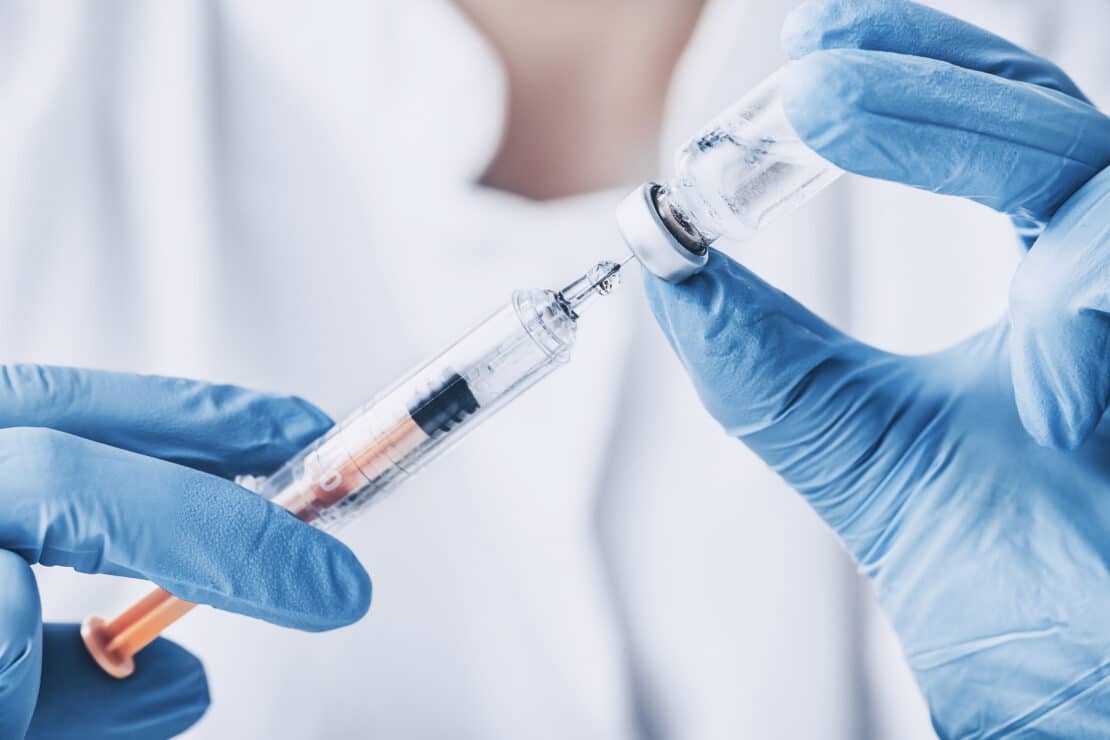The news was alarming to anyone who has taken the Johnson & Johnson coronavirus vaccine…
The federal government called for injections of the single-dose vaccine to be halted after six recipients suffered blood clots. All were women between ages 18 and 48. One died. Another was hospitalized in critical condition.[1]
Some 6.8 million people in the U.S. have received the J&J shots.
The FDA says it doesn’t yet know if the vaccine caused the clots. But the AstraZeneca vaccine, which uses the same technology, is linked to similar problems in Europe.[2]
“We are recommending a pause in the use of this vaccine out of an abundance of caution,” said Dr. Peter Marks. He is director of the FDA’s Center for Biologics Evaluation and Research.
J&J Vaccine: What You Should Do If You’ve Had It
All of the blood clots occurred between six and 13 days after the patients received the J&J vaccine. The other two vaccines available in the U.S., from Pfizer and Moderna, have not been linked to blood clots.[3]
All six women developed a rare condition called cerebral venous sinus thrombosis. It is a form of stroke.
Dr. Geoffrey Barnes is a cardiologist at the Michigan Medicine Frankel Cardiovascular Center. “This is a blood clot that forms in one of veins that helps to drain blood from your head back down to your heart,” Dr. Barnes said. “It’s an uncommon place for blood clots to form.”[4]
Even before the blood clot issue, the Pfizer and Moderna vaccines may have been preferable. A U.S. trial found J&J’s shot had 72% efficacy. That’s significantly lower than Pfizer and Moderna, which were over 90%.[5]
Also, less is known about the safety of J&J vaccine, since it was rolled out later than the other two vaccines. Some 110 million Americans have had the Pfizer or Moderna shots, compared to under 7 million for the J&J vaccine.
No one knows how the J&J or AstraZeneca vaccines could trigger blood clots. Both are viral vector vaccines. They use a harmless virus to carry bits of the coronavirus into the body to create an immune response.
The Pfizer and Moderna vaccines are different. They are mRNA vaccines. They use bits of genetic material to create immunity.
South Africa also halted J&J vaccination. And the European Union delayed the planned rollout of the vaccine.
Dr. Barnes said that if you’ve received the J&J vaccine and you have typical vaccine side effects, you shouldn’t worry. “If you just got your vaccine yesterday or the day before, it’s pretty common that you might feel muscle aches, maybe chills, fever, headache, or flu-like symptoms. That’s not something to be concerned about.”
The timing is crucial, Dr. Barnes said. Normal vaccine side effects occur within a day or two of the shots. Blood clots occur later.
“If you fall into the window of about four to five days up to three weeks post-vaccination, that’s where we’ve heard about these very rare blood clot events,” he said.
The CDC said J&J recipients should contact their doctor if they received the vaccination within the last month and suffer:
- Severe headaches
- Abdominal pain
- Leg pain
- Shortness of breath
The most common symptom of the blood clots is a moderate to severe, persistent headache that begins six days or later after the shot.
The FDA said it did not know when vaccinations of the J&J shot would resume.
Get the Latest Breaking News About Coronavirus Here
- Are COVID Vaccines Safe? A new report provides detailed side effect information. Click HERE to read more.
- New COVID Treatment Hope: She lay dying of COVID-19 on a ventilator in a Buffalo hospital. Doctors gave her just a 20% chance to live. But after getting this treatment, she made “a complete turnaround,” her son said. Click HERE to read more.
- Will You Suffer an Allergic Reaction to the Coronavirus Vaccines? Answer these four questions to gauge your risk. Click HERE to read more.
References:
[1] https://www.nytimes.com/live/2021/04/13/world/johnson-vaccine-blood-clots?action=click&module=Top%20Stories&pgtype=Homepage
[2] https://www.nytimes.com/2021/04/13/health/blood-clots-johnson-vaccine.html
[3] https://medicalxpress.com/news/2021-04-south-africa-halts-jj-vaccine.html
[4] https://www.freep.com/story/news/health/2021/04/13/cerebral-venous-thrombosis-blood-clots-johnson-and-johnson-vaccine/7201408002/
[5] https://www.ucsf.edu/news/2021/03/420071/how-effective-johnson-johnson-covid-19-vaccine-heres-what-you-should-know

